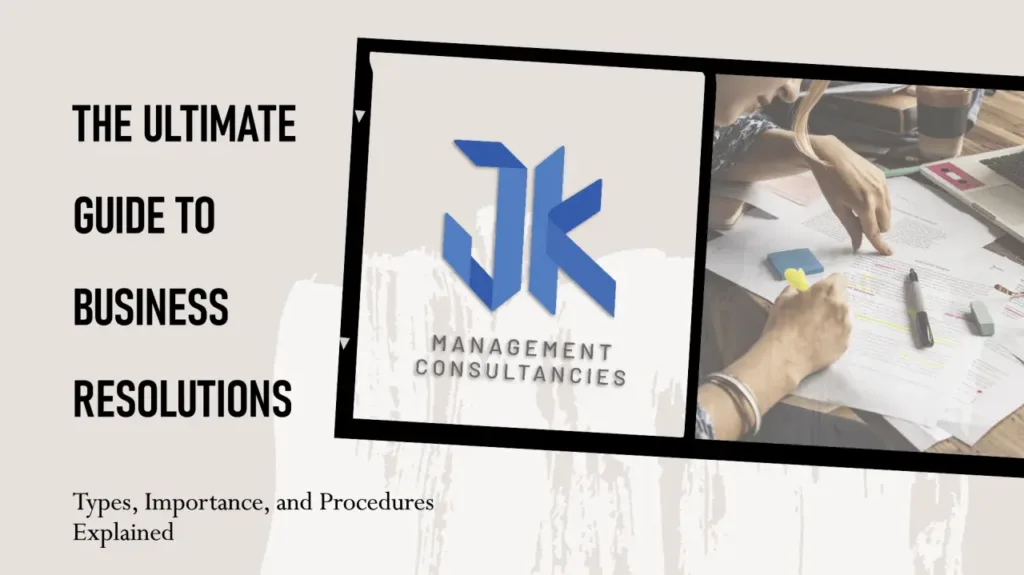In the context of business and corporate governance, a “resolution” refers to a formal decision made by a company’s board of directors or shareholders. Resolutions are critical tools for enacting corporate policies, approving significant transactions, and ensuring that the company operates within the bounds of its governing documents and applicable laws. This comprehensive guide explores the concept of resolutions in business, types of resolutions, their importance, and the procedures involved in passing them.
What is a Business Resolution?
A business resolution is a formal statement of a decision or intention made by a company’s board of directors or shareholders. It is a written record that details the decisions taken during meetings and serves as a legal document that can be referred to in the future. Resolutions are essential for maintaining transparency, accountability, and effective governance within a company.
Importance of Business Resolutions
Business resolutions are crucial for several reasons:
- Legal Compliance: Resolutions ensure that a company’s actions are in compliance with corporate laws and regulations. They provide a legal record that can be used to demonstrate that decisions were made according to proper procedures.
- Clarity and Documentation: Resolutions provide clear documentation of decisions, which is essential for future reference, auditing, and resolving disputes. They ensure that everyone within the company understands the actions that have been approved and the rationale behind them.
- Accountability: By formally recording decisions, resolutions hold the board of directors and shareholders accountable for their actions. They ensure that decisions are made transparently and that those responsible can be identified.
- Corporate Governance: Resolutions are a key aspect of good corporate governance. They ensure that decisions are made systematically and that the company operates according to its bylaws and governing documents.
Types of Business Resolutions
There are several types of business resolutions, each serving a specific purpose. The primary types include:
- Ordinary Resolutions:
- Special Resolutions:
- Written Resolutions:
- Unanimous Resolutions:
- Extraordinary Resolutions:
The Process of Passing a Resolution
The process of passing a resolution involves several key steps, which may vary depending on the type of resolution and the company’s governing documents:
- Proposal
- Notice
- Meeting
- Voting
- Recording
- Filing
Examples of Common Resolutions
Understanding the practical application of resolutions can be enhanced by exploring common examples:
- Ordinary Resolution: Approval of Financial Statements
- Special Resolution: Amendment of Articles of Association
- Written Resolution: Approval of a Loan Agreement
- Unanimous Resolution: Authorization of a Major Acquisition
Challenges and Considerations
While resolutions are fundamental to corporate governance, they also present challenges and considerations:
- Achieving Consensus: Obtaining the required majority for special or unanimous resolutions can be challenging, especially in large companies with diverse shareholder bases.
- Legal Compliance: Ensuring that resolutions comply with legal requirements and the company’s governing documents is crucial. Non-compliance can render a resolution invalid.
- Transparency and Communication: Effective communication and transparency are essential to gain the support of shareholders and directors. Clear, concise proposals and thorough discussions can help achieve this.
- Timeliness: Some decisions need to be made quickly, making it essential to have efficient procedures for passing written resolutions when necessary.
- Record-Keeping: Accurate record-keeping is vital for future reference and legal compliance. Minutes of meetings and copies of resolutions must be meticulously maintained.
Conclusion
Business resolutions are indispensable tools for corporate governance, enabling companies to make formal decisions that are legally compliant, transparent, and well-documented. Understanding the different types of resolutions, their purposes, and the procedures involved is essential for anyone involved in corporate management or governance.
From ordinary resolutions for routine decisions to special and unanimous resolutions for significant corporate actions, each type plays a vital role in the smooth operation and legal compliance of a company. By following proper procedures and maintaining clear records, companies can ensure that their resolutions contribute to effective governance and the achievement of their strategic objectives.



















